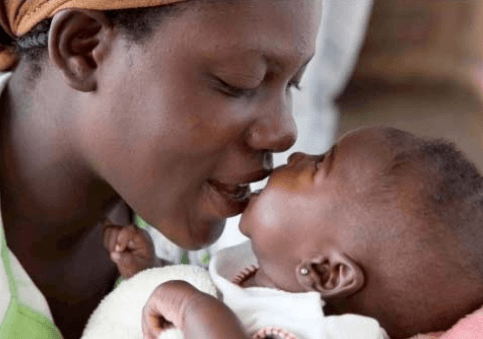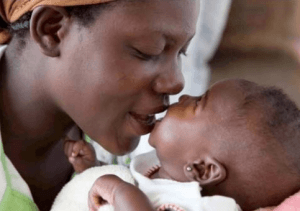

 Ghana is recording declines in skilled delivery, immunisation, adolescent health, and postnatal care despite increasing numbers of trained health workers.
Ghana is recording declines in skilled delivery, immunisation, adolescent health, and postnatal care despite increasing numbers of trained health workers.
Dr Kennedy Brightson, Director for Public Health at the Ghana Health Service, observed that it was unusual that despite rising health education, specialists, and midwives, the country continued to lose more women.
“In 2022, 806 pregnant women walked into our labour wards and never returned home. In 2023, the number rose to 861, and although it dipped to 819 last year, 800 maternal deaths a year is not something we should ever accept,” he said at the opening of the 5th Maternal, Child Health and Nutrition Conference in Accra.
The three-day conference is on the theme: Strengthening Free Primary Health Care – Accelerating Equity and Access to Reproductive, Maternal, Child, Adolescent and Nutrition Services towards attainment of the SDG 2030.
Dr Brightson said key indicators such as skilled delivery coverage, adolescent antenatal attendance, and child immunisation had all recorded steady declines between 2022 and 2024, threatening progress towards the Sustainable Development Goals (SDGs).
He called for urgent investments in primary health care, nutrition, and quality of care to avert preventable deaths and rising complications among women and children.
Dr Brightson noted that a major complication confronting maternal health was the rising incidence of visico-vaginal fistula (VVF), a childbirth injury that leaves women leaking urine continuously.
“It is painful to see women hide in their rooms because they cannot control the flow of urine, although specialists continue to repair fistula cases, the numbers are still overwhelming,” he said.
He added that in 2025, the Service could only target 80 repairs out of about 300 cases due to limited funding.
On child health, Dr Brightson said although an estimated 349,022 babies were expected in 2025, the number of skilled births and emergency obstetric care was not rising proportionately.
He called for stronger health financing, improved supply chains, better coordination across government agencies, and expanded community health systems.
“Primary health care is the backbone of our health system. If it fails, mothers, newborns, children, adolescents and the elderly will pay the price,” he said.
Dr Maxwell Bisala Konla, a Dietitian at the University of Ghana Hospital, said Ghana was facing “a silent nutrition crisis,” worsened by rising consumption of ultra-processed foods and poor food-related behaviours.
He said women of reproductive age faced high deficiencies in iron, vitamin A, iodine and folate, while children continued to suffer from stunting, wasting and anemia. Adolescents lacked micronutrient-dense diets, and adults were malnourished despite feeling full.
Dr Konla urged government to make healthy diets more affordable and integrate nutrition into every primary health care touchpoint, saying: “Our food system has set many Ghanaians up for malnutrition, we must rethink how we feed ourselves and our children.”
Dr Promise Sefogah, General Secretary of the Society of Obstetricians and Gynecologists of Ghana (SOGOG), called for urgent policy attention to women in the menopausal transition, a group he said remained invisible within current care models.
“We must address the gaps in care for women before, during, and after their reproductive years, universal access to respectful, quality obstetric care must be a national priority,” he said.
Source: GNA
The post Ghana reports decline in maternal and child health appeared first on Ghana Business News.
Read Full Story















Facebook
Twitter
Pinterest
Instagram
Google+
YouTube
LinkedIn
RSS